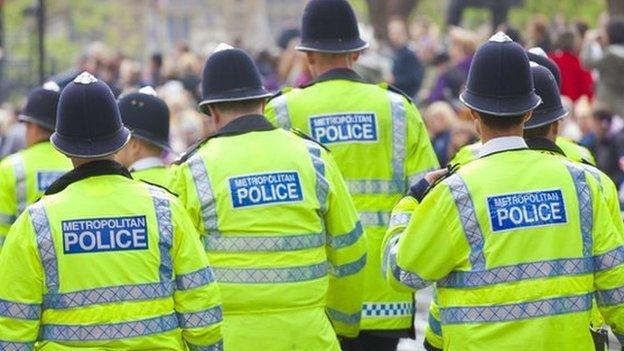Police chiefs threaten Home Office with legal action over reforms
- Published
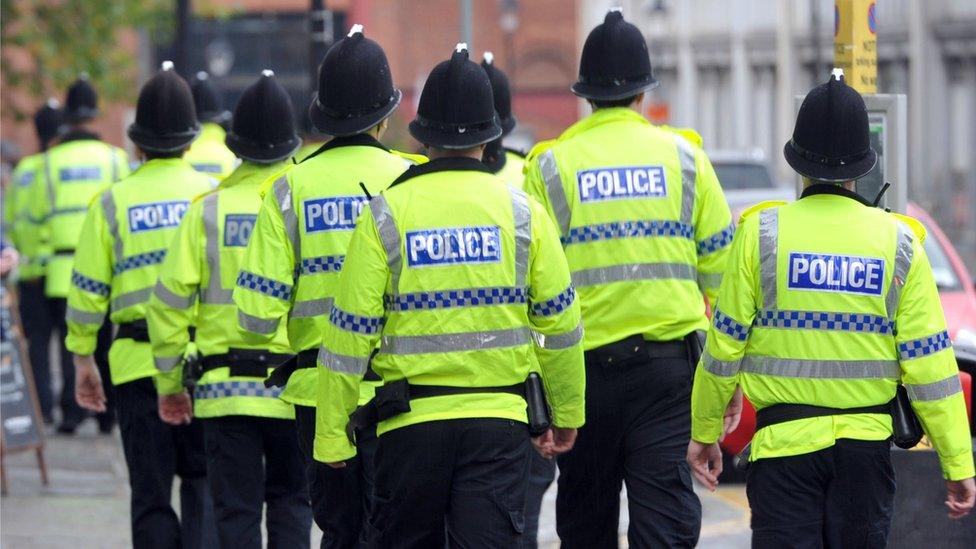
Six police and crime commissioners have threatened the Home Office with legal action over changes to the way police forces in England and Wales are funded.
The group, which also includes London's deputy mayor for policing, has written to the government arguing the proposals are "unjustified and deeply flawed".
The signatories, five of whom are Tories, say they will seek a judicial review unless the changes are halted.
The government has said the old funding formula was "not fit for purpose".
New proposals, which the Home Office is currently consulting on, external, set out changes to the way central government allocates funding to the 43 forces in England and Wales.

Analysis
By Danny Shaw, BBC home affairs correspondent
The funding formula review was always likely to result in winners and losers. Police and crime commissioners were prepared for that.
What they hadn't bargained on was the scale of the changes which, on top of the expected central government funding cuts, appear to put the sustainability of some forces at risk.
The possibility of judicial review proceedings is no idle threat and, if carried out, could delay the process or derail it entirely.
One concession ministers are understood to have been considering is to exempt the Metropolitan Police from the new arrangements. The force stands to lose £185m.
The Home Office, though, has denied that any decision has been made. But the changes are proving to be a real headache for ministers, who'll be particularly concerned, with PCC elections just six months away, that five of the seven signatories to the letter are Conservatives.

While some forces could see their budgets increase under the new system, analysts suggest 11 forces could lose out on funding.
According to the Independent, external, the letter to policing minister Mike Penning has been signed by police commissioners representing:
Cumbria
Lancashire
Devon and Cornwall
Merseyside
North Yorkshire
Thames Valley
London's Deputy Mayor for Policing and Crime
The letter says Lancashire Police's annual budget will be cut by £25m - nearly 14% - and Cumbria Police's "viability" will be brought into question if its funding is reduced by £9m under the reforms.
Police services in Britain face a "milestone moment", and the government's decision could shape policing "for a generation", it says.
The group said they were "taking legal advice with a view to initiating a judicial review" should their concerns "not be addressed".
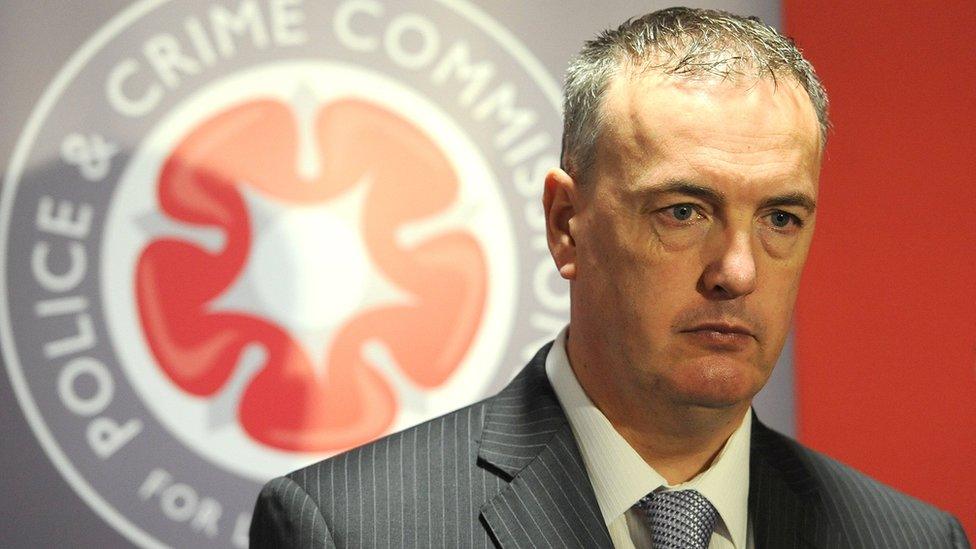
Lancashire police commissioner Clive Grunshaw has criticised the proposed funding changes
Police and Crime Commissioner for Lancashire, Clive Grunshaw, said the move had not been properly handled.
He told the BBC: "It's not been an open process. It's not been transparent. There's been no proper understanding or scrutiny that's been available to challenge the process because we just haven't understood what it's actually meant."
His counterpart at Cumbria, Richard Rhodes, said it was very difficult to save any more money.
"We have up till now been able to preserve the front line. We now have to look seriously about that," he said.
"It's going to be extremely difficult and it's quite clear that whatever police force emerges in Cumbria at the end of this it will be very different from the one we have at the moment."
Anthony Stansfeld, commissioner for Thames Valley, said: "If the funding formula remains unchanged it will have a severe adverse impact on Thames Valley with our annual allocation of police grant decreasing by at least 2.6% or £5.6m next year."
'Fair and robust'
Mr Penning has previously said the reforms, which would take effect in the next financial year, would put police funding "on a long-term, sustainable footing".
The current Police Allocation Formula, which has been used for nearly 10 years, is "complex, opaque and out-of-date", while the new system would be "fair, robust and transparent", he has argued.
The Commons Home Affairs Committee is due to hear evidence about the proposals on Tuesday, with a Home Office consultation, which began in July, due to end on Friday.

What are the proposals?
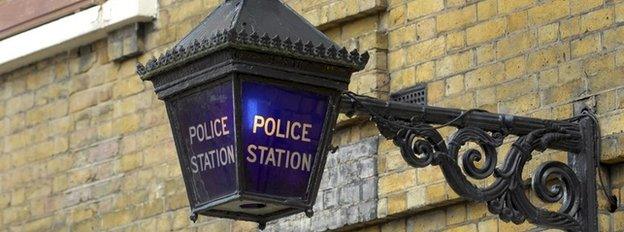
Funding would take into account five features of local areas, including population and the number of council tax band D or equivalent properties in the area, because of the contributions to police from council tax.
Other factors would include the number of households with no working adult and dependent children, a "hard-pressed" population indicator - which covers a wide range of types of households, and the number of bars per hectare.

Last month London Mayor Boris Johnson said the changes would "severely disadvantage" the capital.
He told the London Assembly its impact "has not been properly thought through at all".
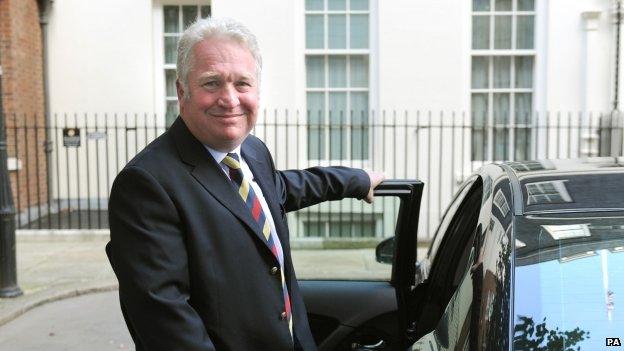
Justice minister Mike Penning has said police funding needs to change
Chancellor George Osborne is due to announce the latest departmental spending review in November which will set out details of the Home Office budget beyond 2015-16.
The Met believes it will face cuts of up to £1bn, prompting Met Commissioner Sir Bernard Hogan-Howe to say it would lead to a reduction in the number of front-line officers.
But the Home Office said forces would still have the resources to do their work.
- Published22 October 2015
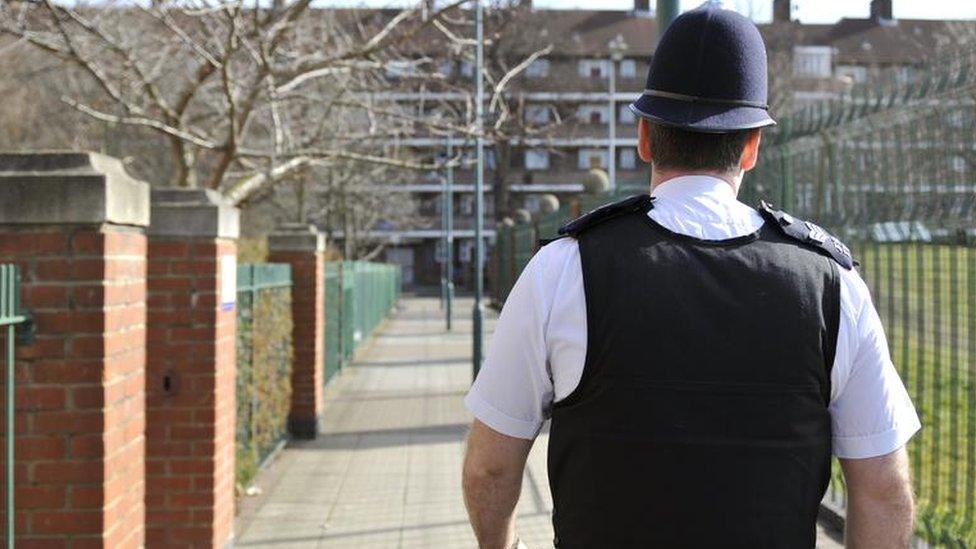
- Published21 October 2015
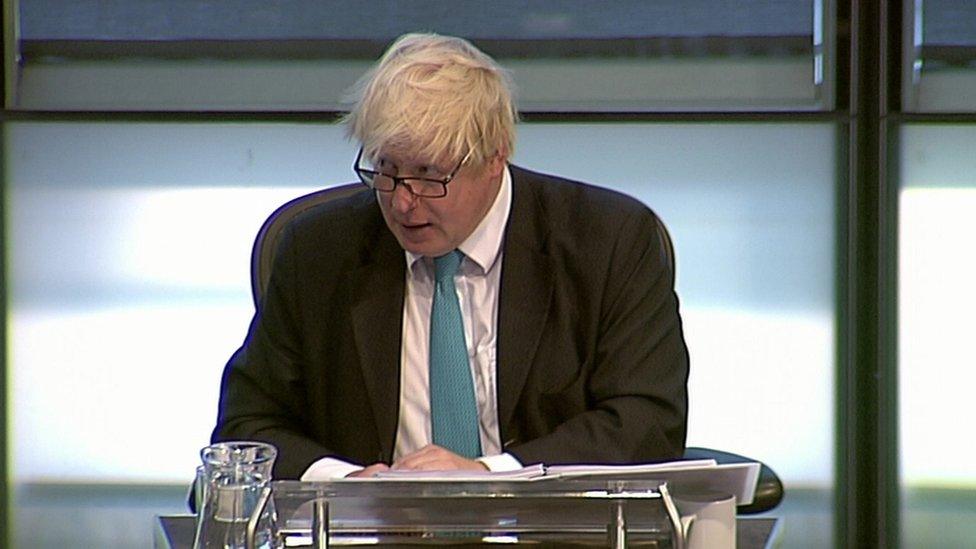
- Published21 July 2015
